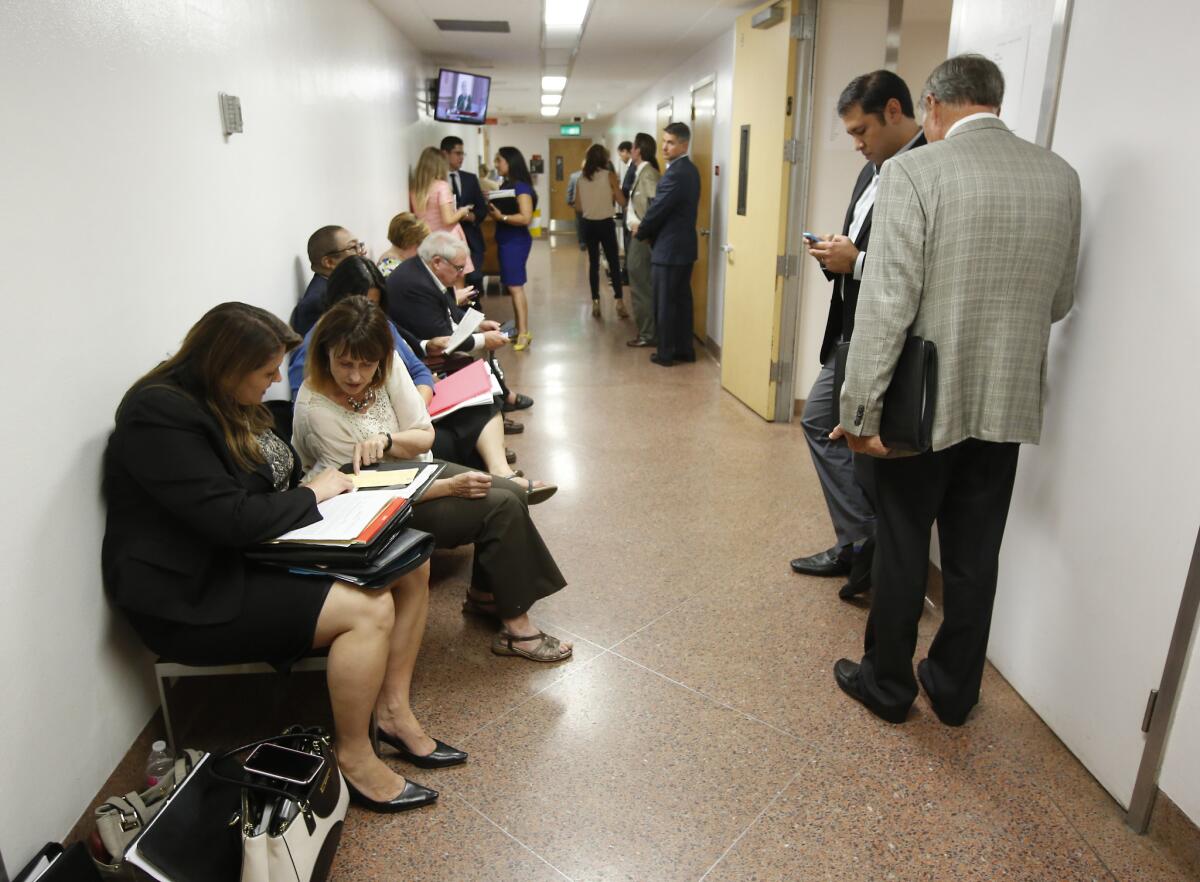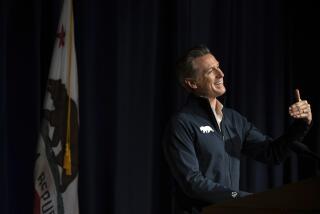Editorial: Dreaming of a Legislature that gets things done? Dream on.

Lobbyists huddle outside the Senate Chambers in Sacramento on Sept. 10 as they wait to talk to lawmakers about various bills under consideration.
California’s two-year legislative session kicked off in December with no small sense of promise. The long night of budget crisis was just a fading memory, thanks to a stabilizing economy and revenue from the taxes voters approved in Proposition 30. A new rainy-day fund would help the state avoid deep deficit holes again, and a new crop of legislators with longer potential tenures would do great things.
For the first time in decades, a majority of the Assembly was subject to looser term-limit rules and would supposedly have the energy and the time to focus on the big challenges facing California — volatile revenue, water shortages and crumbling roads among them. Instead of churning out bills intended to appease campaign backers or garner headlines for the next campaign, we reasoned, this crew would finally have the breathing room to set intelligent priorities and systematically tackle tough issues.
It was a great dream. Then we woke up.
Under the harsh light of day, the legislative year that ended on Sept. 11 was, if not coyote ugly, still a bit of a wreck. The last few weeks of the regular session in particular were characterized by political infighting, resulting in three of the four legislative leaders being deposed and no resolution of pressing issues surrounding transportation funding and Medi-Cal. While special sessions on transportation and healthcare are technically still open, there’s little expectation of a breakthrough until next year.
Lawmakers also should have used the relative political calm to tackle important longer-term challenges, such as planning for a post-Proposition 30 future. The quarter-cent sales tax hike imposed by the proposition expires next year; two years after that, the income tax hike in the measure expires. Although legislators tossed around ideas about taxing services or simply extending Proposition 30’s levies, they made little progress on either front. Meanwhile, a number of interest groups are trying to put their own tax proposals on the November 2016 ballot, meaning that any plan the Legislature works out next year could have competition.
Lawmakers had two notable accomplishments, passing measures to end the personal belief vaccination exemption for public school students and to provide a right to die for terminally ill patients. That the Legislature could pass these two particularly controversial and bitterly fought bills makes the inactivity on other important issues all the more disappointing.
Midway through this session, the failures heavily outweigh the accomplishments. But it doesn’t have to be the end of the story. There’s another year left for lawmakers to live up to what thus far has been merely fantasy.
Follow the Opinion section on Twitter @latimesopinion and Facebook
More to Read
A cure for the common opinion
Get thought-provoking perspectives with our weekly newsletter.
You may occasionally receive promotional content from the Los Angeles Times.






